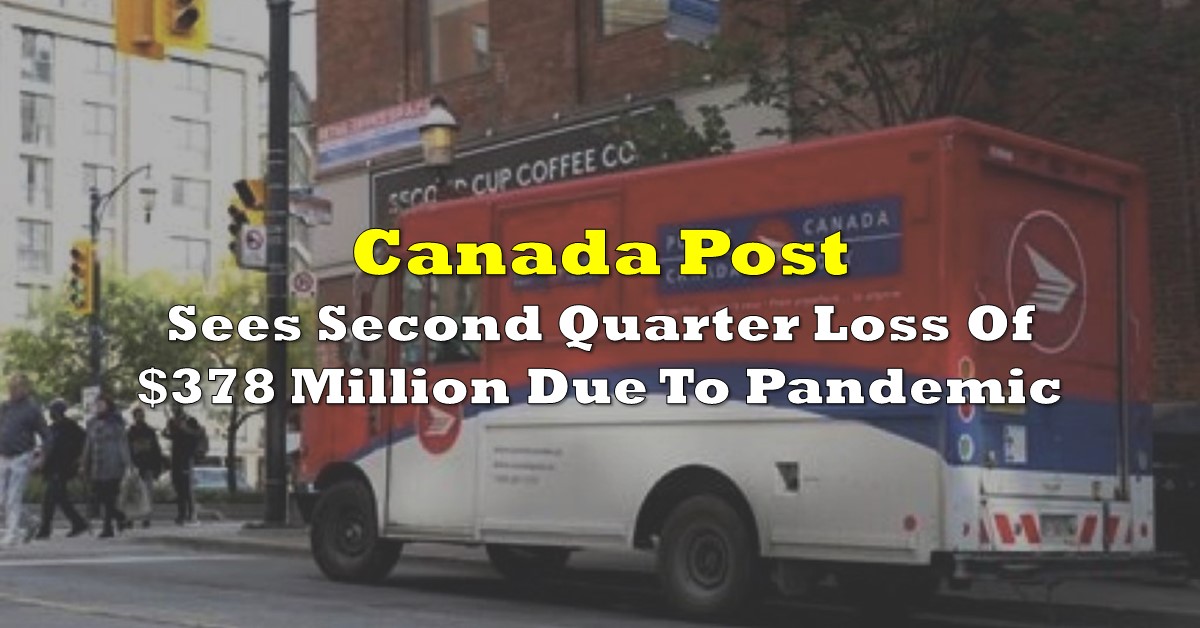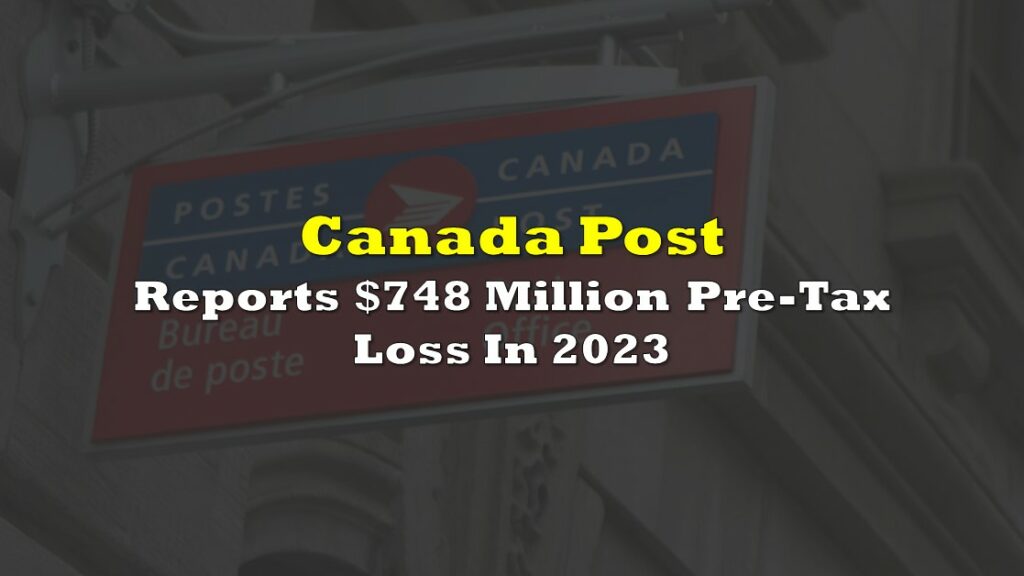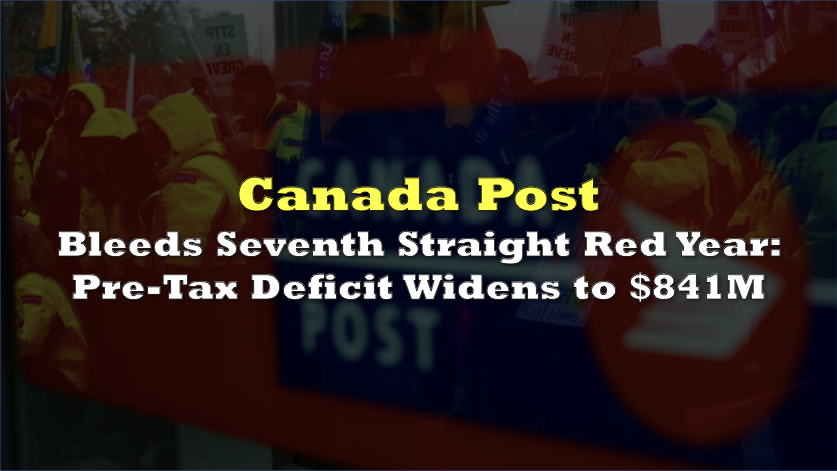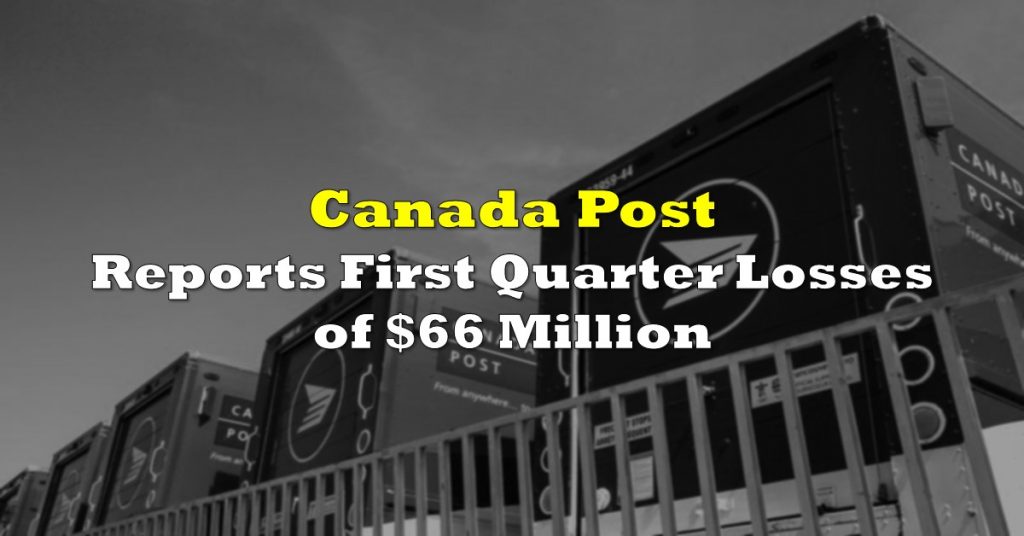Only a government-run postal entity could manage to lose funds as a result of the COVID-19 pandemic. In a time where e-commerce sales, and as a result, shipping of goods, has skyrocketed due to the ongoing pandemic, Canada Post has posted a second quarter loss of $378 million, which it blames largely on the pandemic.
Canada’s postal service released results for the second quarter this morning, revealing that this increased loss is “largely due to the significant impact COVID-19 had on revenue and costs.” Some of the loss was also related to collective agreements signed during the quarter as well.
The service noted a dramatic shift in items mailed as a result of the pandemic, with revenues from transaction mail and direct marketing falling significantly. The estimated total shortfall in revenues due to the virus were pegged at $46 million, while increased costs were pegged at $118 million, culminating in a total impact of $164 million.
Transaction mail, consisting of letters, bills and statements, saw revenues drop by $104 million, or 15.4% for the quarter. Direct marketing meanwhile fell by $126 million or 46.4% due to less economic activity resulting in less flyers and other marketing materials being mailed out.
Parcel revenue grew 35.4% during the quarter to $226 million, with the service stating that parcel volumes were as high as past peak Christmas seasons. For the six month period, revenues for the parcel segment rose $279 million, or 23.3%. Volumes were up 35.5% comparatively, growing by 26 million pieces in the quarter and 21.2% and 30 million pieces for the six month period.
New collective agreements meanwhile added net costs of $114 million, largely due to post-employment healthcare benefits.
The Canada Post Group of Companies as a whole reported a loss before tax of $333 million in the second quarter, compared to a profit before tax in the same period in 2019 of $11 million. Purolator, a segment within the group of companies, also notably saw declining profits, with profits falling from $52 million to $39 million during the period.
The agency finally is quick to highlight that it’s operations are funded by revenue generated by its products and services – and not taxpayer monies.
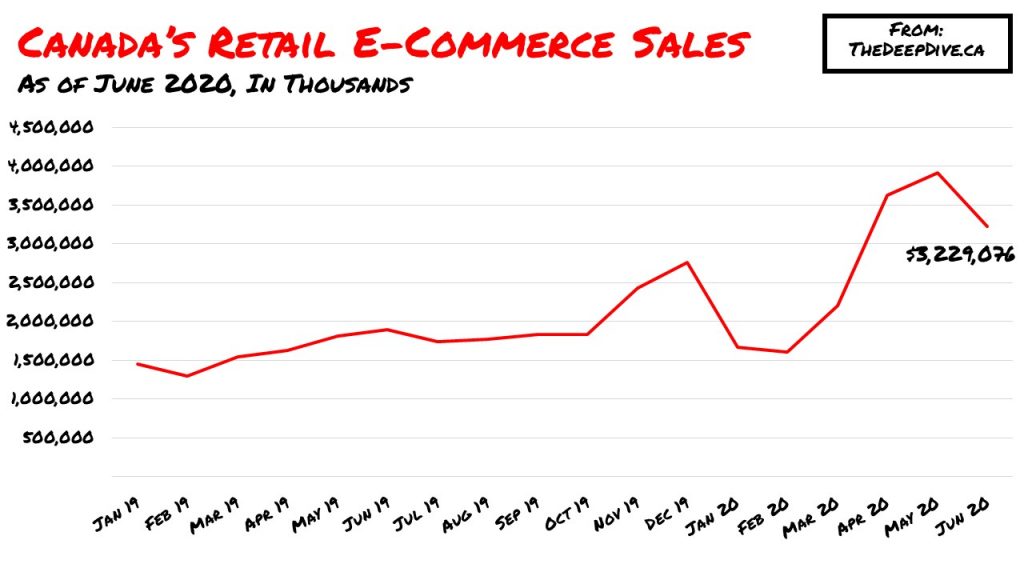
Information for this briefing was found via Statistics Canada. The author has no securities or affiliations related to this organization. Not a recommendation to buy or sell. Always do additional research and consult a professional before purchasing a security. The author holds no licenses.

